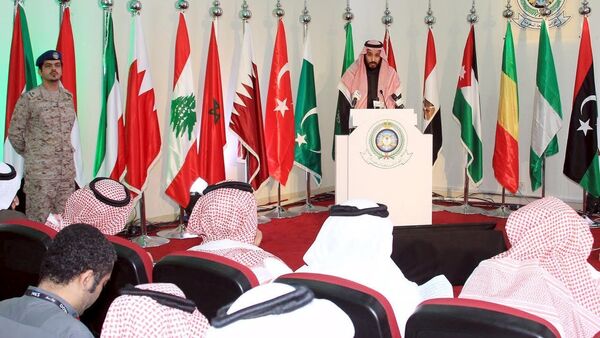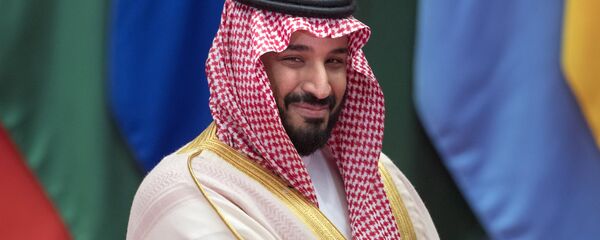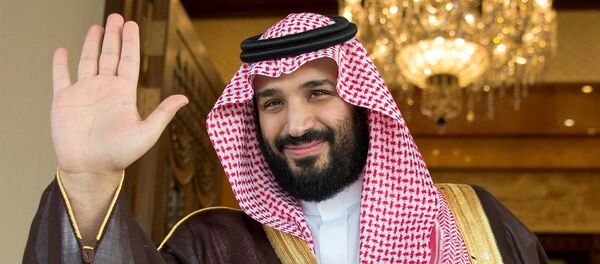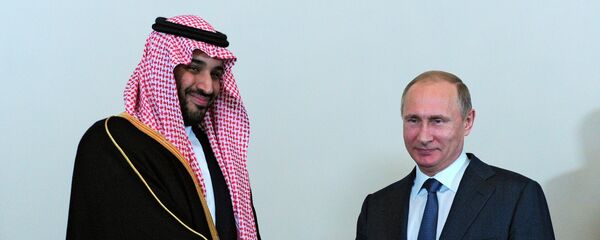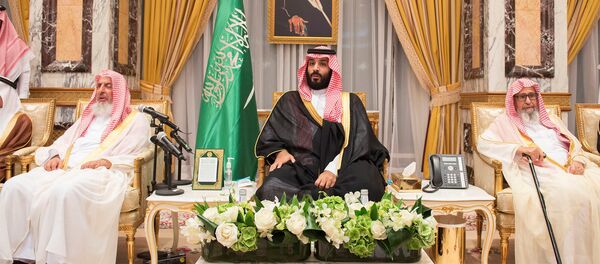"The foreign policy of Saudi Arabia won't undergo any changes. The Kingdom is aimed at cooperation, economic and political partnership and dialogue for the world without terrorism and extremism," he said.
Dr. Eshki reminded that the basic concepts of the policy of the Saudi Arabia had been laid down by King Abdulaziz al-Saud (usually referred to as Ibn Saud), the founder of modern Saudi Arabia. The Kingdom however has been making adjustments to it in compliance with the changes in the region and in the world.
According to the Retired Saudi Major General, the decision on the change of the line of succession in the Kingdom came as a surprise to many.
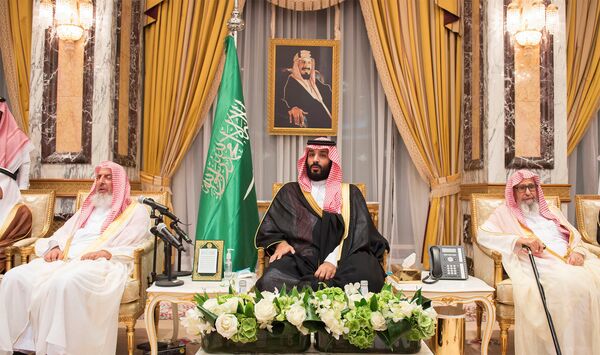
"We know that Saudi Arabia bewildered many who expected a split and animosities in the country, pointing out at the elderly leaders of the country. This decision however signifies that the country is being ruled by regulatory bodies, by the Allegiance Council, the Consultative Assembly and the Bureau of Experts. We are not surprised by these changes and know that they are necessary at this very stage," he said.
Rodger Shanahan, a research fellow at the Lowy Institute for International Policy in Sydney however suggested that the new Crown Prince "has been a very public proponent of a robust Saudi presence in the region."
"Saudi has tried to assert its authority over a range of regional events, and by cementing the question of succession at this time, the region is on notice that this direction will be pursued for the long term," he told Bloomberg.
"The two are eager to isolate Iran, which Riyadh accuses of aggressively trying to spread its influence in the region by supporting Shiite movements and sponsoring terror. Trump has escalated tensions with the Islamic Republic, backtracking on the Obama administration’s tentative rapprochement with the nation," it says.
It also reminded that Prince Mohammed "led a multi-nation effort to quarantine neighboring Qatar over its ties with Iran and support for Islamist groups that Saudi Arabia and the U.A.E. have opposed for years."
Given who’s calling the shots in Riyadh and Washington, "it is not really a question of if but rather of when a new escalation with Iran starts," it quotes Olivier Jakob, managing director of consultant Petromatrix GmbH, as saying.
"Under his watch, Saudi Arabia has developed aggressive foreign policies and he has not been shy about making strong statements against Iran," he added.
Dr. Eshki however said that Saudi Arabia has "good relations with all great powers, especially with Russia and the US." He reminded that at the end of May, the new Crown Prince visited Moscow and met with President Putin. They discussed a wide range of issues from oil prices to cooperation between Russia and the so-called "Arab NATO" which is being pushed for by Riyadh with the support of the US.
Dr. Eshki stressed that in its foreign and internal policies the Kingdom is "aimed at future and is trying to strengthen its role through partnership and cooperation, for the sake of peace and stability."
Bloomberg also reported that "privately, some Saudis expressed concerns about the speed and totality of the changes, saying it was excessive to remove Muhammad bin Nayef, the kingdom’s top counter-terrorism official, from his role as interior minister."
"Muhammad bin Nayef was Washington’s man in Riyadh for a long time," it quotes Peter Salisbury, a fellow at Chatham House, an international affairs research group in London as saying.
"The security establishment will be unhappy he’s gone, more so because the new crown prince has really cut out institutions and is building a direct relationship with the White House," he explained.
Meanwhile, Israeli media network Arutz Sheva, known in English as Israel National News, suggested how the appointment might be beneficial to Israel.
"Muhammad Bin Zayed, the de factor ruler of the UAE, has told Bin Salman that he must open a "strong channel of communication" with Israel if he is to be Washington’s preferred candidate to be king," it quotes the Middle East Eye news website as saying.
"Their Saudi source said Bin Salman is eager to win the support of Washington as he has recently told close associates "he will complete the mission of becoming king before the end of the year."
And then cites one of the Saudi sources, who suggested that "Washington could be swayed into supporting Bin Salman's bid to be king if he could achieve good communication with Israel, even if the Americans like Bin Nayef."

